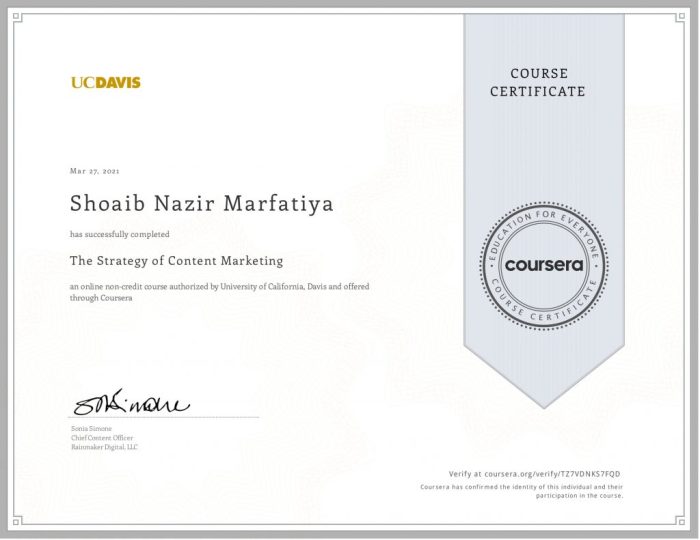What is a digital marketing strategy coursera quiz answers – Welcome to our comprehensive guide to digital marketing strategy, designed to equip you with the knowledge and insights to excel in today’s competitive digital landscape. In this article, we will delve into the intricacies of digital marketing, providing you with a solid foundation to develop and execute effective strategies that drive business success.
Throughout this guide, we will explore the fundamental concepts of digital marketing, the steps involved in developing a comprehensive strategy, and the latest tactics and trends shaping the industry. We will also provide real-world examples and case studies to illustrate the practical applications of digital marketing and its impact on business outcomes.
Course Overview
This course provides a comprehensive overview of digital marketing, covering its fundamental principles, key channels, and strategic planning. By the end of this course, you will understand the importance of digital marketing in the modern business landscape, the different types of digital marketing channels, and how to develop and implement a successful digital marketing strategy.
Prerequisites:
- Basic understanding of marketing concepts
- Familiarity with digital technologies
Digital Marketing Fundamentals
Digital marketing encompasses all marketing efforts that use electronic devices or the internet. It is essential for businesses today because it allows them to reach a wider audience, target specific demographics, and track their results more effectively than traditional marketing methods.
The key concepts of digital marketing include:
- Search engine optimization ()
- Search engine marketing (SEM)
- Social media marketing
- Email marketing
- Content marketing
- Affiliate marketing
Developing a Digital Marketing Strategy
A comprehensive digital marketing strategy is essential for businesses to achieve their online marketing goals. The steps involved in developing a digital marketing strategy include:
- Setting clear goals and objectives
- Conducting a target audience analysis
- Choosing the right digital marketing channels
- Developing a content strategy
- Setting a budget
- Tracking and measuring results
Digital Marketing Tactics

There are a variety of digital marketing tactics that businesses can use to achieve their marketing goals. Some of the most common tactics include:
- Creating high-quality content
- Optimizing your website for search engines
- Running paid advertising campaigns
- Using social media to connect with customers
- Email marketing
- Affiliate marketing
Measuring and Evaluating Digital Marketing Performance

It is important to measure and evaluate the performance of your digital marketing campaigns to ensure that they are meeting your goals. The key metrics used to track digital marketing success include:
- Website traffic
- Conversion rate
- Return on investment (ROI)
Case Studies and Examples: What Is A Digital Marketing Strategy Coursera Quiz Answers
There are many successful examples of businesses using digital marketing to achieve their business goals. Some of the most famous examples include:
- Nike
- Apple
- Coca-Cola
- Amazon
General Inquiries
What is the importance of digital marketing in today’s business landscape?
Digital marketing is crucial in today’s business landscape because it allows businesses to connect with their target audience through various digital channels, such as social media, search engines, and email. It provides cost-effective ways to reach a wider audience, build brand awareness, and drive sales.
What are the key elements of a digital marketing strategy?
A comprehensive digital marketing strategy typically includes defining clear goals and objectives, conducting thorough market research, identifying target audience, selecting appropriate digital marketing channels, developing engaging content, and implementing effective measurement and analysis techniques.
How can I measure the success of my digital marketing campaigns?
Measuring the success of digital marketing campaigns involves tracking key metrics such as website traffic, engagement rates, conversion rates, and return on investment (ROI). Using analytics tools and platforms, businesses can monitor their campaigns’ performance and make data-driven decisions to optimize their strategies.